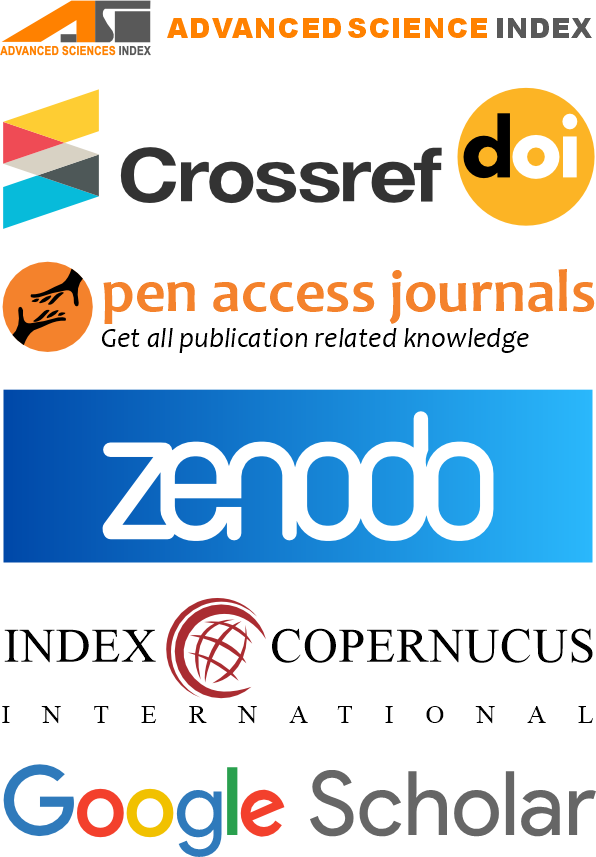Role of Social Media in the Development of Research Skills in Students at the University Level
DOI:
https://doi.org/10.62997/rl.2024.31043Keywords:
Social Media, Academic Research, University Students, Research Skills, Digital Literacy, Information CredibilityAbstract
University students now depend more heavily on social media platforms for their academic research, which has changed their approach to accessing scholarly content, knowledge sharing, and scholarly content interaction. A study investigates social media usage by university students to develop research competencies while evaluating positive and negative features. ResearchGate, along with Google Scholar, LinkedIn, and academic networking sites, gives students quick access to research content as they help researchers network and cooperate on projects. Students face two major obstacles when using these academic platforms: they need to evaluate information reliability and protect their personal data, and they must manage excessive information consistently. A structured questionnaire was distributed to university students using a quantitative research methodology for data collection. It was found that social media helps students get more deeply involved in their research through collaborative learning experiences, which provide simple access to many academic resources. Most students encounter problems distinguishing authoritative sources from fake information, while their privacy concerns prevent them from sharing their work openly. Moreover, students face performance problems in academic material processing due to the excessive quantity of research content they encounter. It is recommended that further research be conducted to examine the extended influence of social media on student academic results while evaluating how artificial intelligence-based analytic tools affect digital research in classes.
References
Al-rahmi, W. M., Zeki, A. M., Alias, N., & Saged, A. A. (2017). Social media and its impact on academic performance among university students. Anthropologist, 28(1–2), 52–68. https://doi.org/10.1080/09720073.2017.1317962
Bennett, S., Maton, K., & Kervin, L. (2008). The ‘digital natives’ debate: A critical review of the evidence. British Journal of Educational Technology: Journal of the Council for Educational Technology, 39(5), 775–786. https://doi.org/10.1111/j.1467-8535.2007.00793.x
Coiro, J., Knobel, M., Lankshear, C., & Leu, D. J. (2022). Handbook of research on new literacies. Routledge.
Dillman, D. A., Smyth, J. D., & Christian, L. M. (2014). Internet, phone, mail, and mixed-mode surveys: The tailored design method. John Wiley & Sons.
Greenhow, C., & Lewin, C. (2016). Social media and education: reconceptualizing the boundaries of formal and informal learning. Learning, Media and Technology, 41(1), 6–30. https://doi.org/10.1080/17439884.2015.1064954
Junco, R., Heiberger, G., & Loken, E. (2012). The effect of Twitter on college student engagement and grades. Journal of Computer Assisted Learning, 27(2), 119–132. https://doi.org/10.1111/j.1365-2729.2010.00387.x
Kapoor, K. K., Tamilmani, K., Rana, N. P., Patil, P., Dwivedi, Y. K., & Nerur, S. (2018). Advances in social media research: Past, present and future. Information Systems Frontiers, 20, 531–558. https://doi.org/10.1007/s10796-017-9810-y
Kimmons, R., & Veletsianos, G. (2018). Public Internet data mining methods in instructional design, educational technology, and online learning research. TechTrends, 62(5), 492-500. https://doi.org/10.1007/s11528-018-0307-4
Kirschner, P. A., & De Bruyckere, P. (2017). The myths of the digital native and the multitasker. Teaching and Teacher Education, 67, 135-142. https://doi.org/10.1016/j.tate.2017.06.001
Manca, S., & Ranieri, M. (2013). Is it a tool suitable for learning? A critical review of the literature on Facebook as a technology‐enhanced learning environment: Is Facebook a tool suitable for learning? Journal of Computer Assisted Learning, 29(6), 487–504. https://doi.org/10.1111/jcal.12007
McNaught, C., & Lam, P. (2014). Using Wordle as a supplementary research tool. The Qualitative Report. https://doi.org/10.46743/2160-3715/2010.1167
Pilotti, M. A. (2021). What lies beneath sustainable education? Predicting and tackling gender differences in STEM academic success. Sustainability, 13(4), 1671. https://doi.org/10.3390/su13041671
Quan-Haase, A., & Young, A. L. (2010). Uses and gratifications of social media: A comparison of Facebook and instant messaging. Bulletin of Science, Technology & Society, 30(5), 350–361. https://doi.org/10.1177/0270467610380009
Roblyer, M. D., McDaniel, M., Webb, M., Herman, J., & Witty, J. V. (2010). Findings on Facebook in higher education: A comparison of college faculty and student uses and perceptions of social networking sites. The Internet and Higher Education, 13(3), 134–140. https://doi.org/10.1016/j.iheduc.2010.03.002
Tufekci, Z. (2015). Algorithmic harms beyond Facebook and Google: Emergent challenges of computational agency. Colo. Tech. LJ, 13, 203. https://scholar.law.colorado.edu/ctlj/vol13/iss2/4/
Veletsianos, G., & Kimmons, R. (2012). Networked Participatory Scholarship: Emergent techno-cultural pressures toward open and digital scholarship in online networks. Computers & Education, 58(2), 766–774. https://doi.org/10.1016/j.compedu.2011.10.001
Vygotsky, L. S. (1978). Mind in society: The development of higher psychological processes (Vol. 86). Harvard University Press.






